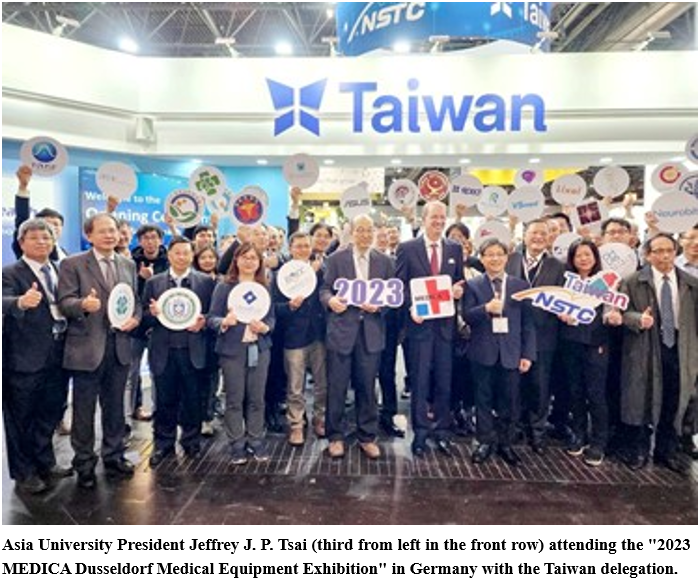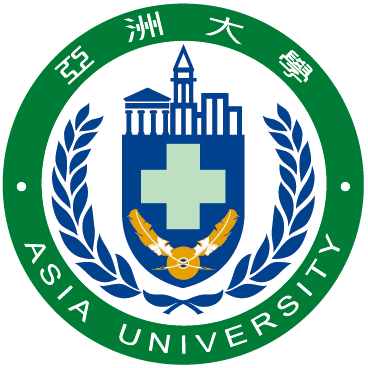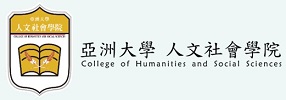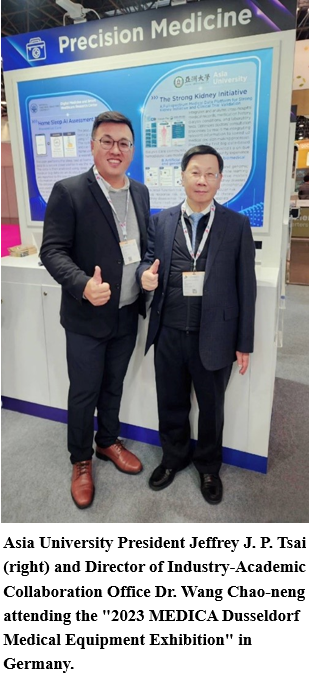
The world's largest global event, Germany's "2023 MEDICA Dusseldorf Medical Equipment Exhibition," took place from November 13th to 16th, with over 150 countries participating and attracting more than 80,000 international buyers. Its scale and influence rank it as the leading global medical trade show. President Jeffrey J. P. Tsai from Asia University led a team to exhibit the "Strong Kidney Chain Project," the only project among Taiwan's private universities approved by the National Science Council. This showcased Asia University's achievements in AI-driven innovative healthcare and precision medicine. One of the project teams, affiliated with China Medical University Hospital, has developed the "Thoracic Ratio Estimation System." The product technology has completed model development and verification and is authorized as market-ready.
This year's German MEDICA medical exhibition featured 5,495 professional medical equipment manufacturers from around the world, covering five major fields of medical materials and technological applications: Laboratory/In-vitro diagnostics, Medical consumables, Medical IT solutions, Physiotherapy/Orthopedics, and Medical technology/Electronic medical materials. It serves as the optimal international exhibition platform linking Taiwan's medical equipment manufacturers to global business opportunities.
President Tsai observed that Taiwan ranks first globally in the incidence and prevalence of end-stage kidney disease, spending over 50 billion New Taiwan dollars annually on health insurance, with little notable improvement primarily due to the lack of systematic comprehensive data. Asia University's "Strong Kidney Chain Project" combines Asia University's affiliated hospitals with the University of Missouri's Big Data and Bioinformatics Research
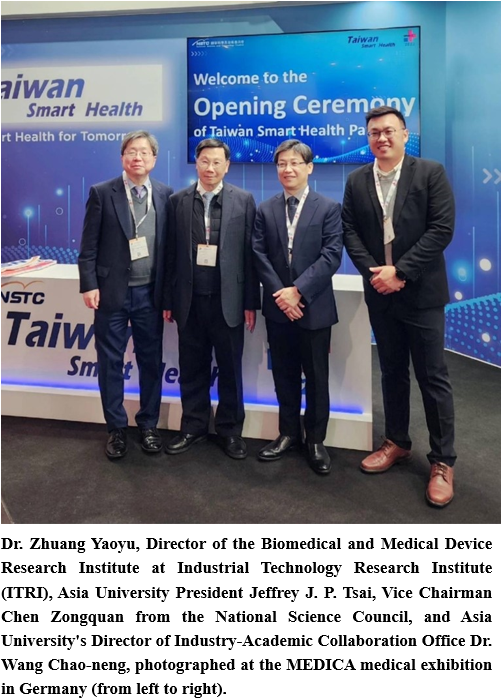
Center, along with China Medical University Hospital's Big Data Center. It focuses on clinical kidney disease care, integrating big data, AI, and blockchain technologies to establish the first blockchain-based hemodialysis care platform, enhancing clinical databases, and accelerating innovation in the biomedical industry.
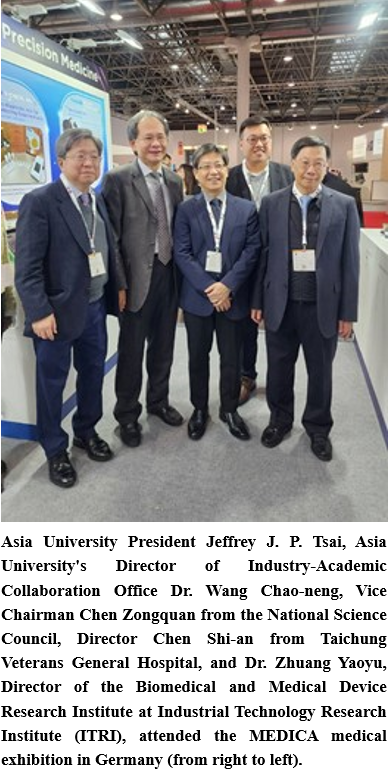
President Tsai pointed out that the "Thoracic Ratio Estimation System" within the project automatically estimates the cardiothoracic ratio from chest X-ray images and provides warnings. It serves as a prognostic indicator for end-stage kidney disease, coronary heart disease, and other illnesses. This project not only passed the National Science Council's "Cross-domain Development and Value-added Application of Clinical Databases and AI" program, making it the only one among private universities in Taiwan to receive NSC support, but the project also obtained registration and medical device software (SaMD) market approval from Taiwan's Food and Drug Administration.
Director Wang Chao-neng mentioned that at the MEDICA medical exhibition, they showcased the Strong Kidney Chain App developed by Asia University. It utilizes dialysis patients' health passbooks to analyze comprehensive health conditions, dialysis-related values and effectiveness, medication education, and aggregated inspection results. This enables more accurate and rapid diagnosis, treatment, and monitoring of kidney-related diseases based on medical data. Doctors can utilize the integrated clinical records, imaging data, genetics, and other data on the comprehensive medical data platform to provide multidimensional services for kidney disease patients, achieving personalized precision medicine. The app is currently available for download on two major mobile operating systems and is undergoing clinical trial verification.
Director Wang further stated that Asia University also exhibited an integration of clinical and genomic data, applying artificial intelligence technology to develop models predicting calcium-phosphorus risk, kidney function risk, cardiovascular risk, predicting the timing of dialysis treatment, and predicting the periods of acute kidney disease. This technology will provide medical professionals with more cogent and efficient assistance.
In recent years, the government has actively promoted the "Taiwan Precision Health Strategy Industry" policy, laying out four major trends: precise prediction, diagnosis, treatment, and prognosis monitoring, aiming for cross-domain integrated intelligent application development. President Tsai explained to Vice Chairman Chen Zongquan from the National Science Council, who visited Asia University's booth, that the "Strong Kidney Chain Project" covers architecture, data, execution, and technology across three years of research and development. It will significantly change the auxiliary kidney healthcare field, assisting healthcare personnel in providing better care services and advancing strides in promoting precision medical research.
